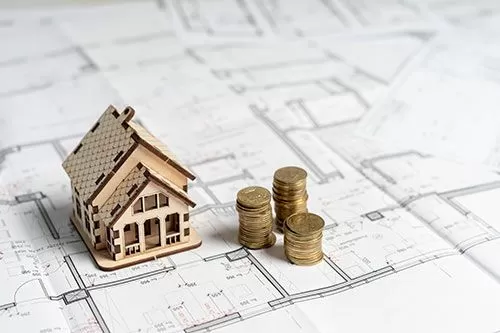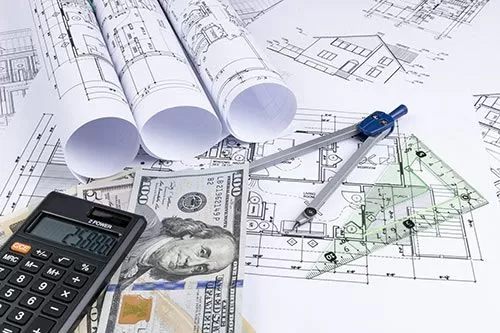A vital part of the BGCH system is having excellent owner builder finance and financial guidance available to clients who want to build their own home in Texas and need an owner builder loan.
Our system works; thus, banks look to BGCH to assure the client’s success.
The financing for owner builder new home construction generally consists of 2 parts:
- The short-term construction loan from a bank, usually 12 month but longer terms are available. Obtaining the construction loan can be difficult, even for qualified applicants.
- The permanent mortgage loan from a mortgage company; acquiring a mortgage commitment, known as a takeout letter, is normally not as difficult.
Read More
THE CHALLENGE: Getting the Best Deal in a Specialized Niche
Financing the new home is the first place most clients think of shopping around to attempt to get the best deal. Owner Builder construction financing, however, is a very specialized niche. Often loan/mortgage officers (salesmen) will promise that they can finance owner builder construction. They are thinking of a regular builder loan, having never done an owner builder construction loan. When push comes to shove, the attorney for the bank generally will not approve the owner builder construction loan. This news comes at or near the closing for the construction loan, and results in wasted time, money and frustration for all involved. This rejection is caused by two reasons:
- Typically, the bank will not let you, the owner, handle the money; 99% of banks insist that a builder write all checks, pay all bills and collect line waivers. The reason for the goes back to the Texas Homestead Act. Most attorneys feel that the bank is on shaky grounds if you were to default on the construction loan.
- The typical Texas mechanics lien, to be signed by the builder, specifies that the builder pays the bills and obtains all lien waivers. As an owner builder however, you will pay all bills and obtain all waivers. BGCH gives you control of the money throughout the process, instead of the typical builder controlling all your building funds. This gives you great protection against a builder going bankrupt during the construction of your new home.
The bottom line is that most banks in Texas will not make an owner builder loan.
Large banks such as Chase or Wells Fargo are the least likely to make these loans; a very few small banks are willing to think outside the box to make owner builder construction loans. BGCH has done the shopping to find the banks willing to make these loans for you, to save you time and hassle.
RISK: Why are banks so strict?
Historically, some owner builders have failed during construction and left the bank with a partially finished home. Thus, bankers view building your own home as a high-risk procedure; they prefer a builder with a proven track record. After all, why should they loan hundreds of thousands of dollars to someone who has never before succeeded at home construction? Bankers are not in the real estate business and do not want to take back your house under any circumstance. They are interested in the return of their money, as well as the return on their money.

BGCH Takes the Risk
Part of the fee you pay BGCH is to take on the risk and back you up at the bank for the construction loan. BGCH mitigates the risk by:
- Careful planning and budgeting, including obtaining bids from quality contractors for the majority of building phases:
All construction must be fully budgeted and assumes that you are having all of the work done by qualified contractors. The budget must provide funds to complete the construction, no matter what. If you do some of the work yourself, you simply do not spend and do not draw the amount allocated in the budget for that phase. This means that the budget will often be higher than your final cost. Any unused portion of the construction loan is not drawn from the bank, and thus the mortgage is generally less than the construction loan.
- An emergency fund, or contingency, to protect against unexpected higher costs:
The rainy day fund is usually at least 5% added to your budget, making your construction loan higher than the budget. The idea is not to spend this contingency. It is simply an emergency fund, a safety net to ensure your successful completion. Any unused contingency is never drawn from the bank; thus; the final mortgage is generally less than the construction loan. This overage is available, however, for upgrades, such as a pool, at the end of construction.
- Recommending a cash reserve of 7-10% of the construction budget:
Your construction loan combined with your personal funds must cover construction costs, contingency, land payoff and closing costs. In construction, cash is king. BGCH recommends that you retain some liquid assets for cash flow purposes during construction. The bank will fund the construction by stages after the work in each phase is completed. With very few exceptions, the bank does not advance loan funds before the subcontractor finishes each stage. For example, the day the slab is poured, you complete the paperwork for the slab draw. After the bank draw inspector visits the site, and turns in his draw inspection report, the bank will fund the allocated slab draw to your account. This generally takes 2-3 days. You then pay the contractor for the slab. With the exception of a possible initial “soft draw,” you are able to borrow money from the bank only after completed work, not just any time you might need or want it. Any operating monies needed in the interim must come from the soft draw or your personal funds/credit lines.
- Obtaining key suppliers who offer credit terms, upon qualification, to BGCH clients:
This gives you the owner builder typically up to 30 days to pay for materials, depending on the date of purchase. One supplier offers 12 month no interest, no payment credit terms. This helps with cash flow needs once you get to the framing stage.
100% SUCCESS
Part of the fee you pay BGCH is to take on the risk and back you up at the bank for the construction loan. BGCH mitigates the risk by:
- Careful planning and budgeting, including obtaining bids from quality contractors for the majority of building phases:
All construction must be fully budgeted and assumes that you are having all of the work done by qualified contractors. The budget must provide funds to complete the construction, no matter what. If you do some of the work yourself, you simply do not spend and do not draw the amount allocated in the budget for that phase. This means that the budget will often be higher than your final cost. Any unused portion of the construction loan is not drawn from the bank, and thus the mortgage is generally less than the construction loan.
- An emergency fund, or contingency, to protect against unexpected higher costs:
The rainy day fund is usually at least 5% added to your budget, making your construction loan higher than the budget. The idea is not to spend this contingency. It is simply an emergency fund, a safety net to ensure your successful completion. Any unused contingency is never drawn from the bank; thus; the final mortgage is generally less than the construction loan. This overage is available, however, for upgrades, such as a pool, at the end of construction.
- Recommending a cash reserve of 7-10% of the construction budget:
Your construction loan combined with your personal funds must cover construction costs, contingency, land payoff and closing costs. In construction, cash is king. BGCH recommends that you retain some liquid assets for cash flow purposes during construction. The bank will fund the construction by stages after the work in each phase is completed. With very few exceptions, the bank does not advance loan funds before the subcontractor finishes each stage. For example, the day the slab is poured, you complete the paperwork for the slab draw. After the bank draw inspector visits the site, and turns in his draw inspection report, the bank will fund the allocated slab draw to your account. This generally takes 2-3 days. You then pay the contractor for the slab. With the exception of a possible initial “soft draw,” you are able to borrow money from the bank only after completed work, not just any time you might need or want it. Any operating monies needed in the interim must come from the soft draw or your personal funds/credit lines.
- Obtaining key suppliers who offer credit terms, upon qualification, to BGCH clients:
This gives you the owner builder typically up to 30 days to pay for materials, depending on the date of purchase. One supplier offers 12 month no interest, no payment credit terms. This helps with cash flow needs once you get to the framing stage.

Fill out this form to receive the free:
4 Steps to Owner Builder Finance Success
Many future owner builders in Texas struggle with how to get owner builder financing to build their own home.
Since 2001, BGCH has been successfully guiding thousands of people like you through the process of getting a loan so you can build your own home on your own property.
